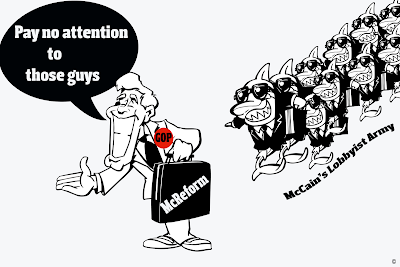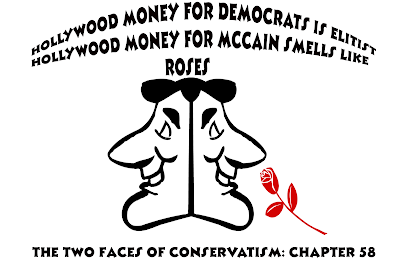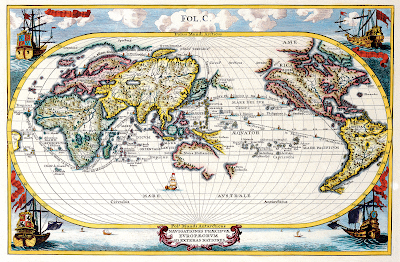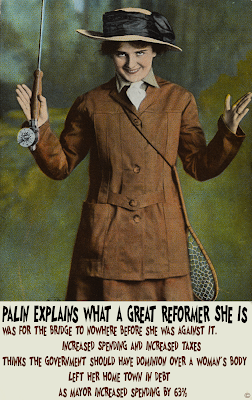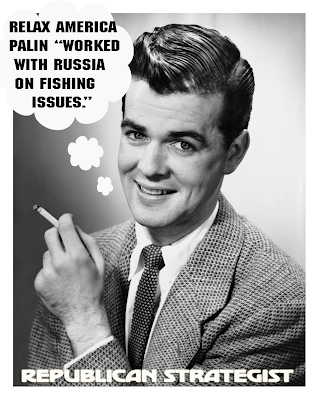Blaming Democrats for the Sub-Prime Crisis by Robert GordonThe idea started on the outer precincts of the right. Thomas DiLorenzo, an economist who calls Ron Paul "the Jefferson of our time," wrote in September that the housing crisis is "the direct result of thirty years of government policy that has forced banks to make bad loans to un-creditworthy borrowers." The policy DiLorenzo decries is the 1977 Community Reinvestment Act, which requires banks to lend throughout the communities they serve.
The Blame-CRA theme bounced around the right-wing Freerepublic.com. In January it figured in a Washington Times column. In February, a Cato Institute affiliate named Stan Liebowitz picked up the critique in a New York Post op-ed headlined "The Real Scandal: How the Feds Invented the Mortgage Mess." On The National Review's blog, The Corner, John Derbyshire channeled Liebowitz: "The folk losing their homes? are victims not of 'predatory lenders,' but of government-sponsored -- in fact government-mandated -- political correctness."
Last week, a more careful expression of the idea hit The Washington Post, in an article on former Sen. Phil Gramm's influence over John McCain. While two progressive economists were quoted criticizing Gramm's insistent opposition to government regulation, the Brookings Institution's Robert Litan offered an opposing perspective. Litan suggested that the 1990s enhancement of CRA, which was achieved over Gramm's fierce opposition, may have contributed to the current crisis. "If the CRA had not been so aggressively pushed," Litan said, "it is conceivable things would not be quite as bad. People have to be honest about that."
This is classic rhetoric of conservative reaction. (For fans of welfare policy, it is Charles Murray meets the mortgage mess.) Most analysts see the sub-prime crisis as a market failure. Believing the bubble would never pop, lenders approved risky adjustable-rate mortgages, often without considering whether borrowers could afford them; families took on those loans; investors bought them in securitized form; and, all the while, regulators sat on their hands.
The revisionists say the problem wasn't too little regulation; but too much, via CRA. The law was enacted in response to both intentional redlining and structural barriers to credit for low-income communities. CRA applies only to banks and thrifts that are federally insured; it's conceived as a quid pro quo for that privilege, among others. This means the law doesn't apply to independent mortgage companies (or payday lenders, check-cashers, etc.)
The law imposes on the covered depositories an affirmative duty to lend throughout the areas from which they take deposits, including poor neighborhoods. The law has teeth because regulators' ratings of banks' CRA performance become public and inform important decisions, notably merger approvals. Studies by the Federal Reserve and Harvard's Joint Center for Housing Studies, among others, have shown that CRA increased lending and homeownership in poor communities without undermining banks' profitability.
But CRA has always had critics, and they now suggest that the law went too far in encouraging banks to lend in struggling communities. Rhetoric aside, the argument turns on a simple question: In the current mortgage meltdown, did lenders approve bad loans to comply with CRA, or to make money?
The evidence strongly suggests the latter. First, consider timing. CRA was enacted in 1977. The sub-prime lending at the heart of the current crisis exploded a full quarter century later. In the mid-1990s, new CRA regulations and a wave of mergers led to a flurry of CRA activity, but, as noted by the New America Foundation's Ellen Seidman (and by Harvard's Joint Center), that activity "largely came to an end by 2001." In late 2004, the Bush administration announced plans to sharply weaken CRA regulations, pulling small and mid-sized banks out from under the law's toughest standards. Yet sub-prime lending continued, and even intensified -- at the very time when activity under CRA had slowed and the law had weakened.
Second, it is hard to blame CRA for the mortgage meltdown when CRA doesn't even apply to most of the loans that are behind it. As the University of Michigan's Michael Barr points out, half of sub-prime loans came from those mortgage companies beyond the reach of CRA. A further 25 to 30 percent came from bank subsidiaries and affiliates, which come under CRA to varying degrees but not as fully as banks themselves. (With affiliates, banks can choose whether to count the loans.) Perhaps one in four sub-prime loans were made by the institutions fully governed by CRA.
Most important, the lenders subject to CRA have engaged in less, not more, of the most dangerous lending. Janet Yellen, president of the San Francisco Federal Reserve, offers the killer statistic: Independent mortgage companies, which are not covered by CRA, made high-priced loans at more than twice the rate of the banks and thrifts. With this in mind, Yellen specifically rejects the "tendency to conflate the current problems in the sub-prime market with CRA-motivated lending.? CRA, Yellen says, "has increased the volume of responsible lending to low- and moderate-income households."
Yellen is hardly alone in concluding that the real problems came from the institutions beyond the reach of CRA. One of the only regulators who long ago saw the current crisis coming was the late Ned Gramlich, a former Fed governor. While Alan Greenspan was cheering the sub-prime boom, Gramlich warned of its risks and unsuccessfully pushed for greater supervision of bank affiliates. But Gramlich praised CRA, saying last year, "banks have made many low- and moderate-income mortgages to fulfill their CRA obligations, they have found default rates pleasantly low, and they generally charge low mortgages rates. Thirty years later, CRA has become very good business."
It's telling that, amid all the recent recriminations, even lenders have not fingered CRA. That's because CRA didn't bring about the reckless lending at the heart of the crisis. Just as sub-prime lending was exploding, CRA was losing force and relevance. And the worst offenders, the independent mortgage companies, were never subject to CRA -- or any federal regulator. Law didn't make them lend. The profit motive did.














